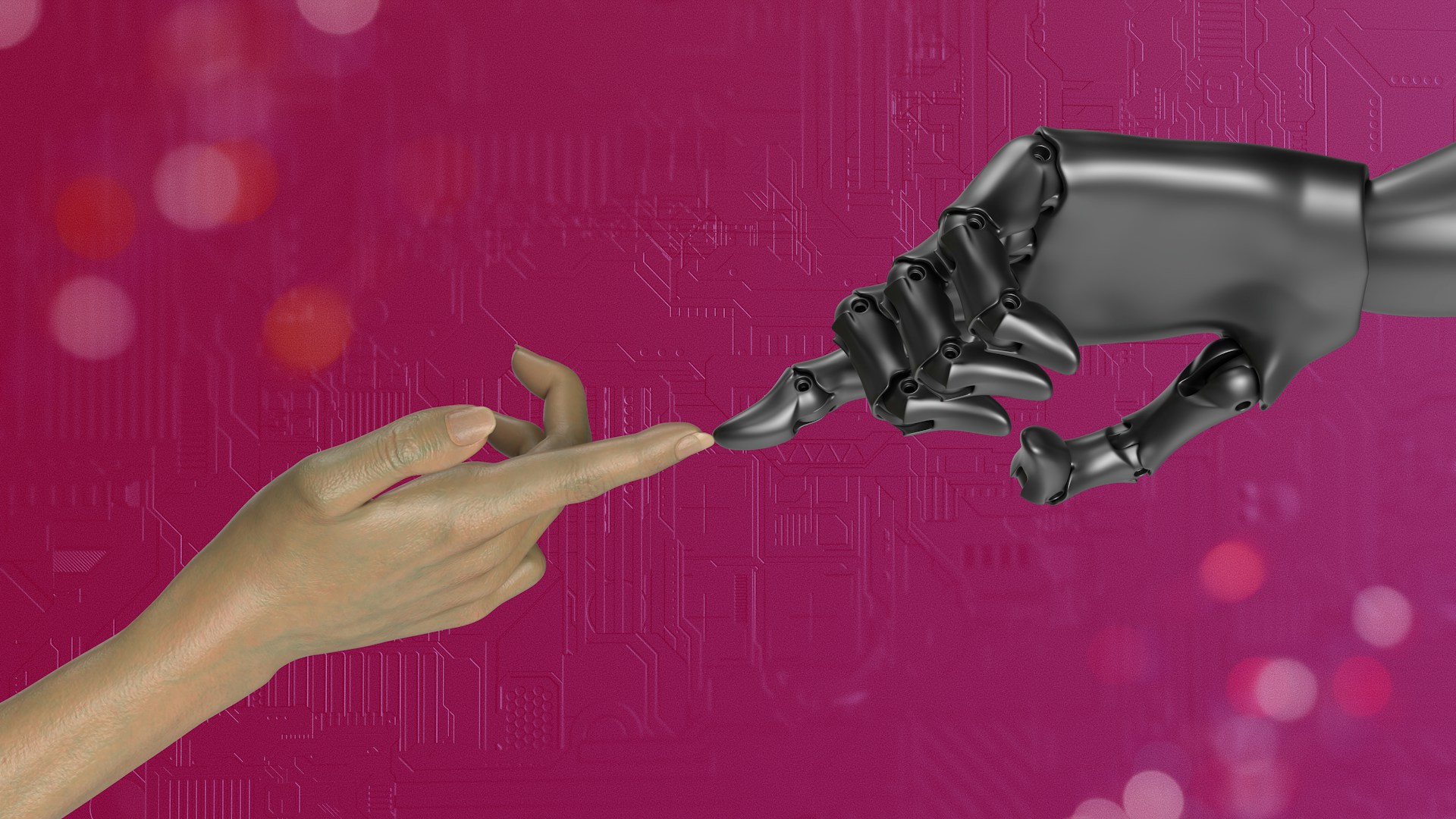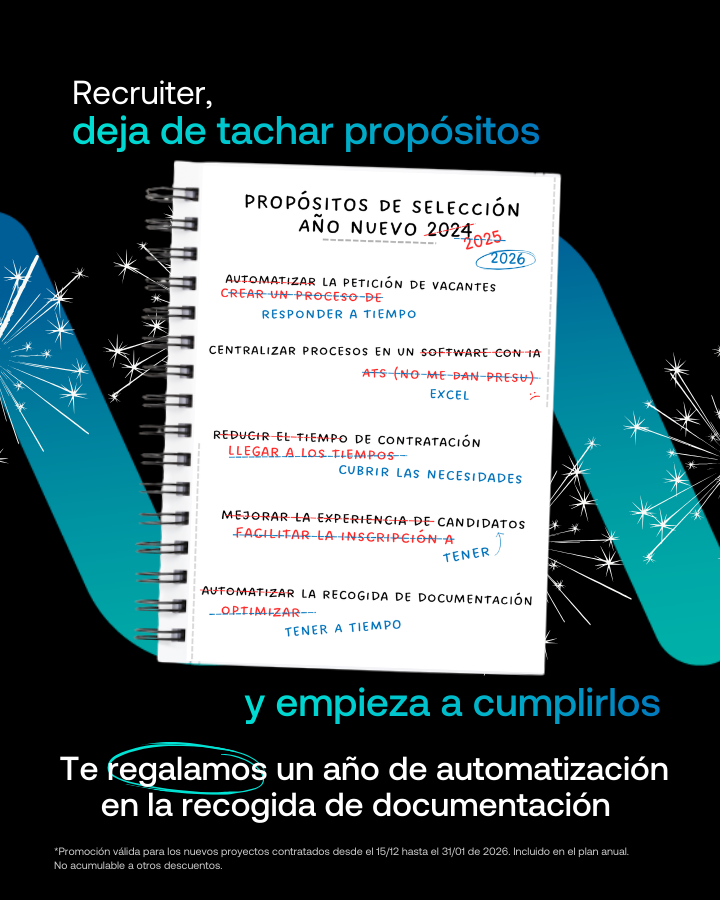AI agents for human resources: The evolution of automation in recruitment

The introduction of AI agents for human resources marks a new stage in a journey HR teams have been on for more than a decade. What began with simple digital tools—online forms, automated emails, basic filtering—has gradually evolved into advanced systems capable of analysing information, learning from historical data, and supporting recruiters in their day-to-day decisions.
These AI agents are not designed to replace people, but to enhance their work. They operate autonomously in many tasks, but the visibility, control, and final decision-making always remain in human hands.
Automation in HR: How it has evolved
Automation in HR did not start with artificial intelligence. It began with small steps: digitising applications, creating structured databases, and speeding up repetitive tasks. These early automations were useful, but they rarely addressed the deeper challenges organisations were already facing—slow hiring processes, difficulty managing high volumes, lack of data, and increasing turnover.
As technology advanced, more sophisticated tools appeared, capable of suggestions, basic classification, or data-driven insights. However, they were still limited: rigid in configuration, reliant on rules, and unable to adapt to changing recruitment needs.
AI agents for human resources are the natural continuation of this evolution. They understand context, adapt to new information, and collaborate with recruiters by taking over operational tasks—always under human supervision. Instead of automating isolated steps, they support end-to-end recruitment with intelligent decision-making.
How do AI agents for recruitment work?
AI agents for human resources are systems designed to understand and execute tasks related to recruitment. They combine several technologies:
- Natural language processing (NLP): reads CVs, interprets candidate responses, and identifies competencies or experience relevant to a role.
- Machine learning: learns from previous recruitment cycles, improving classification and recommendations over time.
- Predictive analytics: identifies success patterns, estimates candidate fit, and anticipates potential risks such as early attrition.
Despite their advanced capabilities, AI agents do not replace human judgement. Recruiters can see everything the agent does, review the analysis, and make the final hiring decision. Transparency remains central: every recommendation can be audited, checked, and adjusted.
How an AI agent can help during a recruitment process
AI agents can support every stage of recruitment, acting as an assistant that reduces operational load while giving HR teams more time to focus on strategic and qualitative interactions.
1. More accurate and efficient pre-screening
AI agents analyse hundreds of CVs in minutes, assessing competencies, identifying transferable skills, and prioritising candidates based on relevance. This prevents talent from getting lost in high-volume processes.
Velora’s platform includes intelligent distribution through AI-powered multiposting, which helps ensure the right candidates are reached without extra effort from the HR team.
2. Automated interviews and skills evaluations
AI agents can conduct structured interviews, analyse responses, and detect communication patterns or behavioural indicators. These early assessments support the recruiter without replacing the human interview.
Velora integrates a multilevel evaluation system that analyses hard skills, soft skills, and role-specific behaviours across different layers.
3. Managing repetitive candidate queries
In sectors like retail, hospitality or logistics, HR teams often face the same questions repeatedly—application status, documentation, interview instructions, and more. AI agents can answer these instantly, improving candidate experience and reducing workload.
4. More consistent onboarding experiences
A significant proportion of early turnover comes from poorly structured onboarding. AI agents help coordinate first-day tasks, documentation, and initial training pathways, ensuring every new hire receives a coherent and well-guided experience.
Practical examples
- Slow recruitment processes: AI agents screen and prioritise candidates almost instantly.
- Overloaded HR teams: They automate repetitive tasks and centralise communication.
- Poor onboarding consistency: They organise and guide early-stage processes.
- High early turnover: Predictive insights highlight candidates more likely to stay.
Even in these cases, the recruiter remains in control. AI assists the process, but people make the decisions.
Why AI agents for human resources are the next evolution in recruitment automation
AI agents represent the next step because they solve limitations that traditional systems—including standard ATS platforms—cannot address.
1. Higher accuracy and deeper understanding
Instead of relying on keywords, they understand context, meaning, and role requirements, resulting in more reliable assessments.
2. Reduced bias and greater consistency
Their evaluations follow objective and transparent criteria, helping minimise subjective variations while still allowing human oversight.
3. Increased efficiency without losing control
AI agents automate entire workflows but keep recruiters fully informed of each step.
4. Better visibility for decision-making
They generate detailed insights—conversion rates, bottlenecks, candidate quality, predictive patterns—giving HR teams more clarity than ever.
AI agents do not replace HR professionals; they empower them. They allow teams to focus on strategic, human, and relationship-driven work while the system handles the repetitive, operational, and analytical side of recruitment.
.jpg)
Fulfill your selection purposes
Recruiter, fulfill your recruitment purposes in 2026 with the help of Velora. And as a gift, a free year on automatic document request.

Related articles
More articles to inspire your HR strategy



.jpg)





